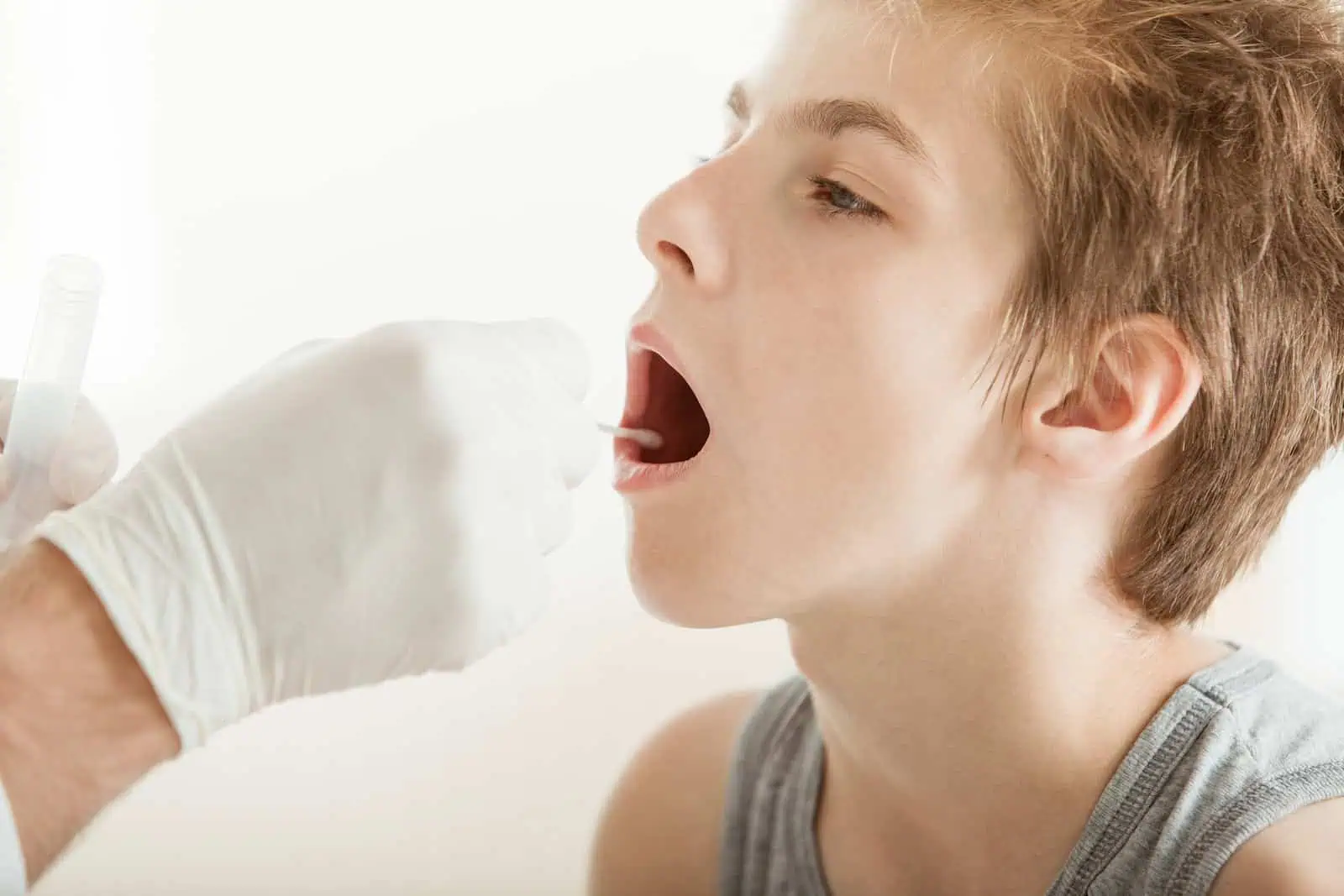Comprehensive Oral Pathology Services at Valley Oral Surgery in Livermore and Dublin, CA
Valley Oral Surgery offers comprehensive evaluation and biopsy of abnormal oral tissues to identify and manage oral diseases.

What Is Oral Pathology?
Oral pathology is the branch of dentistry and medicine focused on identifying and diagnosing diseases that affect the mouth, jaw, salivary glands, and facial tissues. These may include benign (non-cancerous), precancerous, or malignant (cancerous) conditions — as well as infections, cysts, and autoimmune diseases.
Our role at Valley Oral Surgery is to:
- Examine and evaluate unusual changes in the oral cavity
- Perform tissue biopsies or surgical removal of suspicious lesions
- Coordinate care with pathologists, physicians, and referring dentists
- Support early diagnosis to ensure the best outcomes
Prompt evaluation of oral abnormalities is essential for early detection and peace of mind.
Signs You Should See an Oral Surgeon
You may be referred for an oral pathology evaluation if you notice any of the following symptoms:
- A sore that does not heal after 2 weeks
- Persistent white, red, or mixed patches inside the mouth
- Lumps or thickening in the cheeks, lips, or tongue
- A growth or mass in the jaw or palate
- Unexplained bleeding, numbness, or pain
- Difficulty swallowing or moving the jaw
- Changes in bite, jaw alignment, or speech
Most of these signs are not cancerous — but they should be evaluated promptly to rule out serious disease and determine whether further testing is needed.
Common Conditions We Evaluate
At Valley Oral Surgery, we routinely assess and treat:
- Leukoplakia: White patches that cannot be wiped off
- Erythroplakia: Red, velvety lesions that may indicate dysplasia
- Oral lichen planus: A chronic inflammatory condition
- Mucoceles: Fluid-filled cysts of the salivary glands
- Fibromas: Benign overgrowths of connective tissue
- Tori or exostoses: Bony growths in the jaw or palate
- Odontogenic cysts or tumors: Arising from tooth-forming tissues
- Suspicious ulcers or growths: That require biopsy for diagnosis
Some of these conditions are managed surgically in our office, while others are referred to specialists for coordinated treatment.
What to Expect During Your Evaluation
- Detailed Review of Medical & Dental History: We’ll ask about your symptoms, duration, and any risk factors (e.g., tobacco, alcohol, or previous cancer history).
- Clinical Examination: We examine the entire oral cavity, including lips, cheeks, tongue, floor of the mouth, hard and soft palate, and lymph nodes.
- Imaging (if needed): For deeper or bone-involved lesions, we may take 3D imaging scans to better visualize the area.
- Biopsy or Surgical Removal: If indicated, we may recommend a biopsy (small tissue sample) or complete excision of the lesion. This is typically done under local anesthesia or sedation for comfort.
- Pathology Report & Follow-Up: The specimen is sent to a laboratory for microscopic analysis. We will contact you to review the results and next steps.
Importance of Early Detection
Early diagnosis of oral disease, especially precancerous or cancerous lesions, significantly improves treatment outcomes and survival rates.
Cancers of the mouth and throat often begin without pain, which is why any persistent change in the oral tissues should be professionally evaluated — even if it doesn’t hurt. Our surgeons are trained to detect subtle signs and know when to biopsy or monitor a lesion conservatively.
Who Performs Oral Pathology Procedures?
Our board-certified oral and maxillofacial surgeons, Anna Lu, DMD and Jimmy Tung Nguyen, DDS, MD, are experienced in diagnosing and managing oral lesions. They collaborate with local pathologists, oncologists, and medical providers to support timely, accurate care.
Oral Pathology Evaluations Across the East Bay
Valley Oral Surgery provides oral pathology consultations and treatment from our offices in Livermore and Dublin. We welcome patients from Pleasanton, Tracy, Castro Valley, San Ramon, Fremont, Hayward, and other nearby Bay Area communities. Our practice also supports referrals from general dentists, physicians, and ENT providers.
FAQs: Oral Pathology Evaluation
Is every oral lesion cancerous?
No. Most lesions are benign. However, persistent changes in the mouth should always be evaluated to rule out serious conditions.
Will I need a biopsy?
If a lesion appears suspicious or unusual, a biopsy may be recommended. It is the most definitive way to diagnose the tissue.
Is a biopsy painful?
Biopsies are performed under local anesthesia. Discomfort is minimal, and healing typically occurs within a few days.
How long do biopsy results take?
Most pathology reports are returned within 7–10 business days. We will contact you to review the results and plan further care if needed.
Should I be worried about a sore that won’t heal?
Not necessarily — but if a sore persists for more than 2 weeks, especially without a clear cause, it should be evaluated professionally.
Lorem ipsum dolor sit amet, consectetur adipiscing elit. Suspendisse varius enim in eros elementum tristique. Duis cursus, mi quis viverra ornare, eros dolor interdum nulla, ut commodo diam libero vitae erat. Aenean faucibus nibh et justo cursus id rutrum lorem imperdiet. Nunc ut sem vitae risus tristique posuere.

